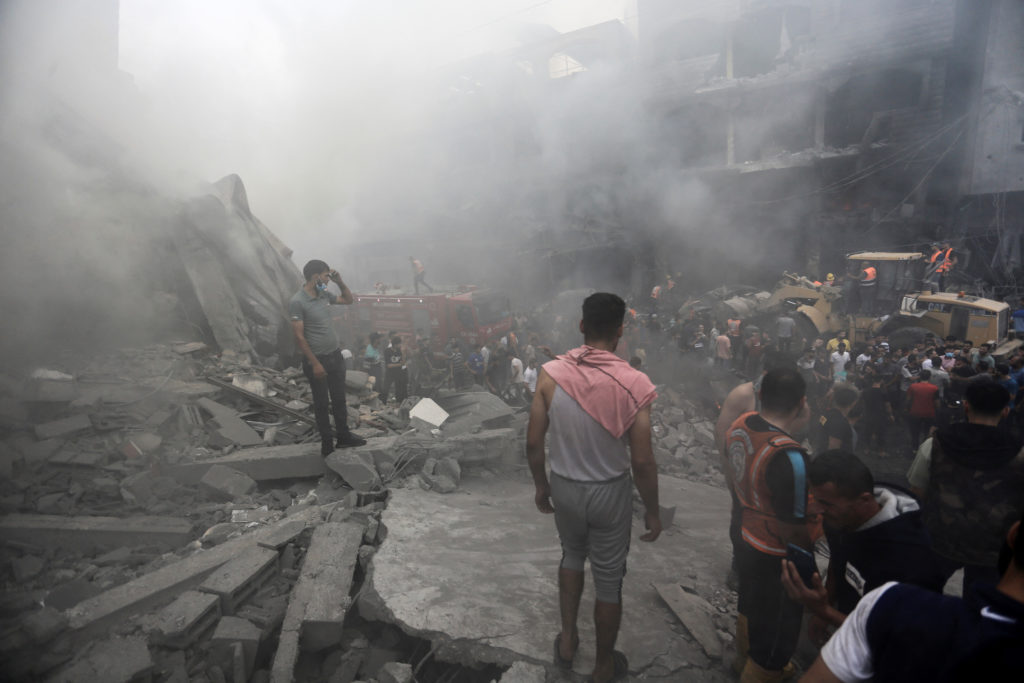More than 30 years have passed since the Srebrenica massacre claimed the lives of over 8,000 Bosnian men and boys in July 1995, yet the painful legacy of those events remains alive and contentious. A poignant world premiere of the play *Flowers of Srebrenica* portrays the chilling remnants of the tragedy, showcasing families still grappling with grief and loss. It illustrates the brutal reality where victims were identified through remnants of clothing and personal belongings, underscoring the continued search for closure.
At the core of the drama is the stark reality of division in modern-day Bosnia and Herzegovina. While families in Sarajevo gather in somber remembrance, political leaders in Republika Srpska, a Bosnian Serb entity, openly reject the characterization of the massacre as genocide, despite overwhelming international consensus.
"As time passes, I thought reason would prevail," reflected lead actress Selma Alispahić, capturing the frustration felt by many as painful historical truths are often distorted by those in power. That's particularly evident as Milorad Dodik, Republika Srpska's president, manipulates legislation and stirs divisive rhetoric, leading to fears of renewed conflict and instability.
Commemorative events illustrate contrasting attitudes: in Sarajevo, memorials flourish; whereas in East Sarajevo, the absence of acknowledgment starkly hints at ongoing denial. Amid this political strife, activists and families of victims rally for remembrance, desperate for unity and acknowledgment of their suffering.
Amid the backdrop of political gamesmanship, community members report growing anxiety. Mirela Osmanović, who works at the Srebrenica Memorial Centre, voiced deep concerns over rising tensions. "We feel unprotected and worry about our future," she said, drawing parallels to the turbulence of the early 1990s.
The path toward healing is fraught with challenges, as political leaders’ manipulation of historical narratives threatens to overshadow genuine efforts for reconciliation. Amid the chaos, hearts ache for the lives lost, and families remain hopeful for a time when truth and remembrance can foster unity rather than division.
At the core of the drama is the stark reality of division in modern-day Bosnia and Herzegovina. While families in Sarajevo gather in somber remembrance, political leaders in Republika Srpska, a Bosnian Serb entity, openly reject the characterization of the massacre as genocide, despite overwhelming international consensus.
"As time passes, I thought reason would prevail," reflected lead actress Selma Alispahić, capturing the frustration felt by many as painful historical truths are often distorted by those in power. That's particularly evident as Milorad Dodik, Republika Srpska's president, manipulates legislation and stirs divisive rhetoric, leading to fears of renewed conflict and instability.
Commemorative events illustrate contrasting attitudes: in Sarajevo, memorials flourish; whereas in East Sarajevo, the absence of acknowledgment starkly hints at ongoing denial. Amid this political strife, activists and families of victims rally for remembrance, desperate for unity and acknowledgment of their suffering.
Amid the backdrop of political gamesmanship, community members report growing anxiety. Mirela Osmanović, who works at the Srebrenica Memorial Centre, voiced deep concerns over rising tensions. "We feel unprotected and worry about our future," she said, drawing parallels to the turbulence of the early 1990s.
The path toward healing is fraught with challenges, as political leaders’ manipulation of historical narratives threatens to overshadow genuine efforts for reconciliation. Amid the chaos, hearts ache for the lives lost, and families remain hopeful for a time when truth and remembrance can foster unity rather than division.




















